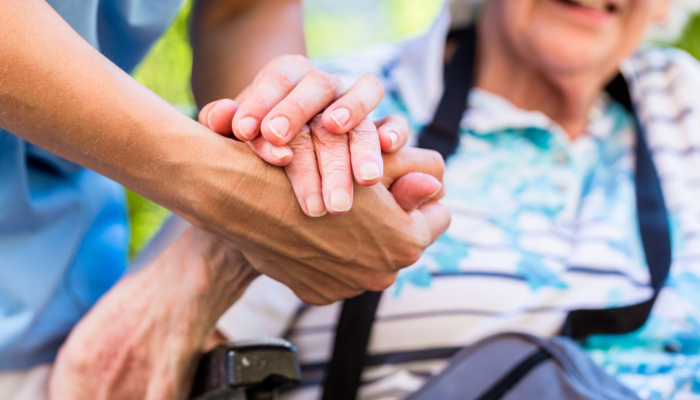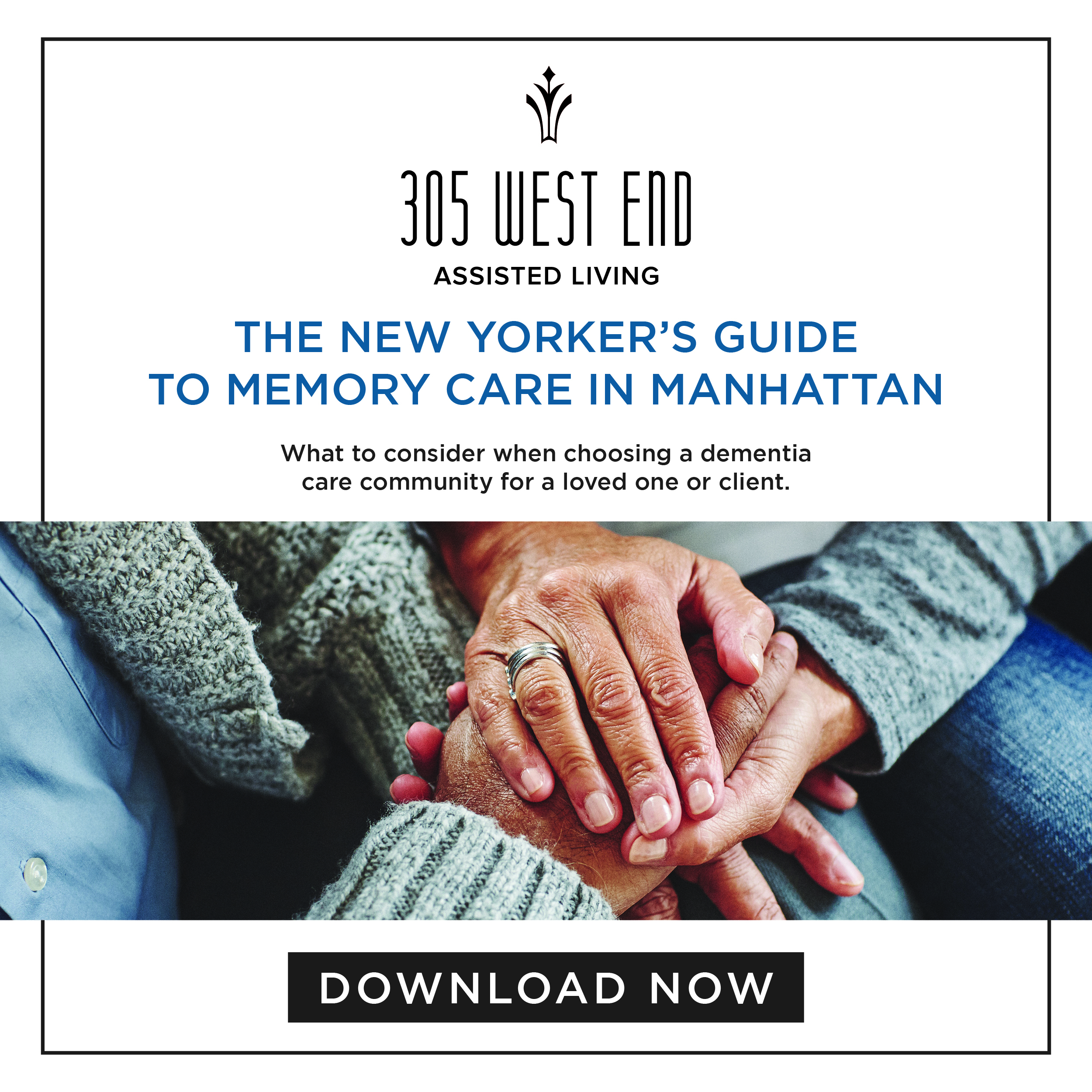In this blog series, we offer in-depth resources for those caring for a loved one with Alzheimer’s or dementia.
---
As a caregiver for a loved one living with Alzheimer’s or other type of dementia, you wear many hats. As you run errands, bring your loved one to appointments, prepare meals, and provide care, you may find that you don’t have the time or energy for anything else — including socializing.
Fortunately, there are ways you can help prevent, identify, and counteract social isolation. Learn more about why preventing social isolation is so important and find strategies for coping in this blog from 305 West End Assisted Living.
Preventing Self Isolation
Social isolation can occur when friends and family members drift away from you or cannot understand the challenges you can face as a caregiver. You may often feel you have too much to do and too little time.
Sometimes, social isolation is self-imposed, as caregivers unwittingly separate themselves from their social circle or don’t want to ask for help. Isolation doesn’t occur overnight. It’s often a result of slow changes over time — a missed phone call, a canceled coffee date, or a forgotten social gathering.
Identifying the Problem
The first step in helping prevent social isolation is recognizing the problem. Think back over the past few days, weeks, or months and ask yourself:
- Have I spent time having non-caregiving-related conversations with a friend or family member?
- Have I taken a few moments for myself to unwind and recharge?
Making time for yourself and non-caregiving-related activities can be difficult. Outside of a lack of time, are there other obstacles getting in the way? Are you reluctant to ask others for help? Are you feeling self-conscious about being a caregiver?
It’s helpful to consider your specific needs so you can feel more confident when asking for support. Starting small can be an easier transition — quality over quantity is key. Having small conversations throughout the day with a friend can be valuable.
Planning and Support
As you plan your day, include designated times for social connection. You should be as attentive to scheduling time for yourself as you are in scheduling time to take care of your loved one.
Also, ensure that your social circle includes those who genuinely care for and understand you. Spend your time with people who respect your caregiving journey and are willing to support you throughout it.
This could also mean joining a support group, such as one formed by your local chapter of The Alzheimer’s Association, where you’ll meet other caregivers who understand your challenges.
Consider the Effects of Self Isolation
Many caregivers don’t want to take time for themselves or simply cannot. You may not have someone to look after your loved one regularly. Or, you may feel guilty about spending time on yourself instead of your loved one.
However, social connection and relationships are essential to one’s health and well-being. One study found that being socially isolated can have health consequences equivalent to smoking 15 cigarettes a day.
Loneliness can significantly increase your risk of depression and may lead to poor sleep, impaired immunity, and accelerated cognitive decline.
Consider also that taking care of yourself will help you recharge and better care for your loved one. It’s a win-win situation.
Using Self-Care and Respite Resources
Sometimes, there is simply no time for the caregiver because you are the sole provider of care for your loved one. In this case, respite care can be beneficial.
Depending on your location, respite care can take place over a few hours, days, weeks, or even months. The goal is to give you a break to spend however you choose.
You may need a few hours to run errands or spend time with your family. Or, you may be planning a trip and need someone to care for your loved one while you are away.
The National Institute on Aging has collected information on several resources you can use to locate respite care in your area. Depending on the option you choose, it can be provided at home, in a senior living community, or at an adult day center.
A consistent self-care routine — even if only a few minutes at the beginning or end of the day — is essential for caregivers. Meditation, reading, journaling, and stimulating physical or mental activity are ways caregivers can relax and recharge.
Get more self-care suggestions here >>
Additional Resources for Caregivers
Caregiving can be a challenging, yet ultimately joyful, journey. Know that you are not alone and that resources are available to help.
Our complimentary guide includes the following topics:
- Addressing caregiving challenges
- Time management tips
- Mindfulness suggestions for mental health
- And more







